The Yang Slinger: Vol. LVII
You want to make it as a freelance writer. She wants to make it as a freelance writer. They want to make it as freelance writers. What to do ... and how to do it.
At the risk of setting the cranial lobes of 10,000 under-40 freelance writers spontaneously aflame, I’m about to write a sentence that, eh, might sting.
OK.
Deep breaths.
Deeper breaths.
Deepest breaths.
Here I go …
Once upon a time, freelance writers could make $4-to-$6 a word.
No, I’m not lying. No, I’m not exaggerating. Do me a favor and hop into that car sitting over there. Yes, that one. With the doors Elon Musk ripped off. Have a seat, buckle yourself in and travel back in time to the mid-1990s. Drive to the nearest newsstand. Yes, newsstand. A fucking place with newspapers and magazines. Those items printed on—oh, for god’s sake–on actual paper.
See how many there are? Details. Best Life. GQ. Esquire. TV Guide. XXL. Slam. Vanity Fair. Time. Newsweek. Sports Illustrated. Entertainment Weekly.
On.
And on.
And on.
Those magazines were all rolling in advertising dough, because at the time the Internet was merely a place where one might visit for a quick porn hit1 or to download the theme song from “Alf.”2 If people needed to be entertained, or informed, they picked up magazines. Big, thick, overloaded magazines that, at times, could exceed 100 pages in an issue.
As a result, a busy (and in-demand) freelance writer could clear, oh, $200,000 in a year—plus all sorts of cool travel, plus sweet accommodations, plus a per diem, plus your byline in a magazine everyone on the planet (or at least in your universe) read.
Alas …
Those days are over.
Four years ago, while being profiled for Cosmopolitan, the writer Taffy Brodesser-Akner told Jen Ortiz that—as a freelancer—she would not write for anything less than $4 per word. And the sentiment, well … it didn’t really fly with her fellow scribes.
Save for a long-ago phone call, I don’t know Taffy Brodesser-Akner. However, her words really irked the fuck out of me. First, because it just seemed uniquely arrogant. But second, because it felt almost intentionally insensitive. Taffy knows $4-per-word is a nearly unfathomable for the modern-day freelancer. Taffy also knows very few writers are making $4 a word. And Taffy should know (though I question whether she does) that there are better writers (than her) making significantly less money.
And that’s not a swipe at (the very talented) Taffy Brodesser-Akner. It’s reality—there are always better writers out there. Better than Taffy. Better than me. Better than Wright Thompson and Sally Jenkins and Howard Bryant and whoever you’re thinking of. Much of this career is about circumstance. Some of us came along at the right time. Or met the perfect editor. Or lucked into the ideal assignment. “Winning Time” isn’t an HBO show because “Showtime” is the greatest sports book ever written3. It’s a show because the right person happened to read it.
Put different: Making it as a freelancer in the modern era is a bear, and those who try deserve more respect than someone making $4 a word reminding people she makes $4 a word and that they don’t make $4 a word.
Wait.
I digress.
My point in writing this substack isn’t to dog a scribe or complain about life, but to offer some hope and optimism toward the modern freelancer. Because, despite journalism’s dark days (or perhaps because of journalism’s dark days), there is—believe it or not—work to be had.
Plenty of work to be had.
That was the shocker to me when I put out an APB for freelancers. One reply after another, 90 percent of whom raved about their experiences. One of the first to hit me up was Kevin J. Ryan, a New York City-based writer who said—with the enthusiasm of a squid on acid—“I quit my full time job a little over a year ago to start freelancing. Best career decision I ever made.” Kevin elaborated that he always knows what his next assignment will be, and that, “In many cases I’m getting assignments rather than having to pitch them.”
Phil Shore followed up shortly thereafter: “I’ve been fortunate enough to freelance with two companies (USA Lacrosse Magazine and Seaman’s Media, which does New England Lacrosse Journal and New England Hockey Journal and New York Journal) for 10-plus years. Especially for lacrosse, there aren’t a ton of quality writers fluent in the sport, so I think me playing and being a journalism major was a good combo. I recognize I’m fortunate, and I try to do whatever I can to keep those connections and relationships, even if it isn’t an assignment they request that I don’t love.”
Then Dennis Gorman: “The New York City market is great, simply because of the number of professional and collegiate sports teams we have. There is always something and someone to report on.”
Then Pete Croatto: “The one thing I love about freelancing is I feel I can determine what the market is. For years, I wrote movie reviews and dabbled in culture writing. There were two issues: First, I was mediocre at both. Second, the gigs I had didn't pay well at all. In about 2013 or 2014, I decided to focus more on sports reporting, which saved my career and my sanity. There was far less competition, I loved the work (and still do), and the pay was far, far better than the $25 I made for writing about HAPPY FEET 2 or JOHN CARTER. That's another aspect to ‘market’ that I don't think gets discussed nearly enough. The beauty of being a freelance writer is you don't have to stick to one topic or even one job. You can copyedit, do white papers, write for alumni magazines, trade magazines, or association publications. The ‘market’ is as large as you want it to be. I suspect that people (all three of them) know me as a sportswriter. But that’s a sliver of what I do on a daily basis. Today (Tuesday), I copyedited copy for a magazine’s website, worked on a longform piece of sportswriting that’s in edits, interviewed a subject for an upcoming Poynter feature, and set up interviews for a trade magazine feature and for an informational site for healthcare professionals. I love the variety. Others may want to run from their computer screaming. I should make this clear. Freelance writing isn’t for everyone. I would never say that it is a skeleton key for professional success; you have to find what works best for you and your lifestyle. I have a friend, a wonderful writer, who decided to take a job in healthcare. Another friend just got a full-time editor job, something he wanted desperately after 10-plus years of freelancing. But people who moan and groan about freelance writing who have either a.) never tried it or b.) did it for a few months before calling it quits tend to be dubious sources.”
And before long, I had a shitload of freelance writers telling me how much they enjoy their paths; how they find it liberating and cool and free and fun. How much they love writing for a living. How much they love expressing themselves. The freedom. The bliss. The …
Then I reached the fine print.
As you read this, I am about to file a $500 expense report to CNN.
I wrote a column about Tommy Tuberville, dickhead Alabama senator, that ran today. The piece took me about 40 minutes to write, which means the dough was pretty solid.
I hate every word of it.
The editing was brutal. Brutal. I still don’t understand why it passed through seemingly 800 hands, and why all 800 hands felt the need to change this word, that sentence, this line. But a piece that once had teeth now has no teeth, and I’d rather you not read it.
That said, I was able to write it (and make the money) because I know people at CNN. And one of the fine print points about modern freelancing seems to be that—unlike the glorious days of the cold pitch—it really, really, really, really helps (aka: is vital) to know someone at the place you’re pitching. “By necessity, my approach depends on me relationship with the publication,” said the writer Matthew Osgood. “There are places for whom I can write a basic, ‘I’d like to write about ____’ and they trust me to tell the story, and that I’m going to do the work.’”
And while that’s all fine and dandy, many of us (especially newbies to the profession) don’t have amazing ties to amazing places. And that’s when shit gets really tricky. There just aren’t as many editors at as many places accepting freelance pitches. As I already noted, magazines (the prime pitch spots) have dried up. Newspapers, too, have dried up. Making matters worse: there have been so many bludgeonings at so many joints that the aspiring freelance dance party is enormous. “The numerous layoffs this year (Hearst this week!) have filled up the freelancing pool and increased competition to get stories placed at publications,” said Jake Kring-Schreifels. “It doesn't seem like rates have changed all too much for the outlets that I've regularly written for, but they haven't gotten much better either. At least for me, it's been harder to just lean on a couple deeper reported stories per month.”
“The market,” added Craig Meyer, “feels tough and occasionally overwhelming.”
In short, there are too many freelance writers at too few places fighting for the precious few breadcrumbs available for precious few dollars.
So what to do?
Here’s what to fucking do.
One of my closest friends is a guy named Michael J. Lewis.4
Lew and I met at the University of Delaware—I was editor of the student newspaper when he showed up as a freshman, clad in a jean jacket and dangling JETS pendant.
Through the years, Lew worked for a series of small-to-midsize newspapers (along with a brief stint at Slam Magazine) before marrying, having two kids—and turning into perhaps the best freelance tennis writer I have ever seen.
Lew lives on Long Island. He loves the U.S. Open. He loves covering the U.S. Open. So every year, as the tournament approaches, he scans through the names of American qualifiers, determines where they’re from, double determines whether those towns/cities have hometown publications—and then he pitches the motherfucking shit out of their stories, written with a U.S. Open dateline. Literally, Lew will go paper by paper, tracking down sports editors and e-mailing Dear Mr. … and Dear Mrs …
Over.
And over.
And over.
He tells the editors the benefits.
He’s already credentialed.
They don’t need to pay for accommodations.
He works cheap.
And, year after year, Lew scores. Last year he wrote 15 U.S. Open-based pieces for a bevy of places. Some pay a couple of hundred dollars. Some pay $15. “It all adds up,” Lew told me. “And I love doing it.”
I’ve thought about the Mike Lewis approach a lot. Like, a lot a lot. I’ve thought about how everything is local. And how newspapers aren’t spending money on travel these days.
This is what I believe—strongly.
Were I a regular freelancer in 2023, and I wanted to make my career as a writer, and I was willing to bust ass, the first thing I’d do is think about all the universities near my abode. For example, I live a stone’s throw from UC-Irvine—home of the Division I Anteaters. According to the UC-Irvine website, the school features 18 men’s and women’s teams. Here, for example, is the women’s basketball roster …
Those women are all Division I athletes with stories to tell. Déja Lee is a guard from Canada. Naveah Dean is a forward from Hamilton, Ohio. Caiyle Kaupu came here all the way from Hawaii. Again—they all have stories to tell, and they also all have newspapers that cover their home turf. So what I’m doing—ASAP—is I’m reaching out to Andrea Ohta, women’s hoops media relations point person, and I’m laying bare my plan. I’m a freelancer. I live here. I wanna make it as a writer. I’m going to help you by giving your athletes attention. Could we chat one day about some of the women on the roster?
And if Andrea Ohta has a human head (which she appears to), this will be a no-brainer meeting. Because her career is based upon landing attention for the Anteaters. It’s the reason she’s employed. So, before long, you’re pitching, oh, 14 stories to 14 different outlets. This player averaged 22 ppg last year. That player survived a cancer scare. That player has 23 tattoos across her back. Editors are digging it, because you’re cheap and they don’t have to spend a cent on travel.
After I go through women’s basketball, I go to men’s basketball. And cross country. And water polo. And volleyball. When I’m done with that, I shift to, oh, Long Beach State. San Diego State. UCLA. Azusa Pacific. I pump those wells dry until I’m a freelancing machine.
And here’s the thing—the best thing: You’re not just freelancing, you’re making connections. The sports editor in Toledo may well wind up the sports editor in Yorktown. So now you have a connection to the paper in Yorktown. Then, perhaps, that Yorktown editor gets a job at CNN. “I’ve worked with this woman who hustles her ass off …”
Also, it doesn’t merely apply to sports. Your local university has researchers doing amazing things. Those researchers are from all over the world. Your local university has a threater company with some kid being pegged as the next Denzel. He’s from somewhere. Your local university has a student who has the highest GPA in the history of the universe. He’s from somewhere.
Tip O'Neill used to note that all politics are local.
Well, all stories are local, too. And there are still places to tell them.
Is any of this easy? No.
Does it take time and work and shitloads of elbow grease? Yes.
Can it work? I believe so.
The Quaz Five with … Mark Nagi
Mark Nagi is the author of “Decade of Dysfunction: The Road to Tennessee's Crazy Coaching Search.” You can follow him on Twitter here.
1. In 2019, you published a book about Tennessee football's bungled coaching search, and the ramifications. I say this with nothing but high regard—now that the Vols are good, is there still a market?: Certainly not as much as in the summer of 2018 (when the book was originally released), but there’s still a “those who don’t learn from the past are destined to repeat it” crowd. To be honest I have always looked at “Decade of Dysfunction” as a historical document, something people could grab off a shelf in 2029 as a reference for those wondering “exactly when did Butch Jones kick a field goal from the 1 yard line.” I still sell a few copies here and there. Every little bit helps for my daughter’s 529s. My Gregg Jefferies rookie cards aren’t going to pay for college so I’ve gotta do something.
2. What made you wanna dive into your favorite college's biggest public fuckup?: I did an Oral History of “Schiano Sunday” for the old Gridiron Now website (RIP). After writing that article I knew there was so much more to the story. The Tennessee fan revolt had been building for ten years and finally exploded on November 26, 2017. I didn’t think anyone else was going to delve into all that led to that craziness. I covered Tennessee athletics as a sports anchor/reporter for over 10 years and have freelanced for over 10 more. Vols fans are as passionate and invested as any in the country. I wanted to tell that story and hope I did so properly.
3. For 12 years you've been the TDOT Community Relations Officer in Region 1 (East Tennessee). What does a community relations officer do when it has to come with the department of transportation?: Back in my TV days I tried to get information to the public as quickly and most importantly as accurately as possible. A big part of my job now at the Tennessee Department of Transportation is doing the same thing. If there’s a road construction project that is going to impact someone’s daily commute, I want to know that I’m doing all I can to find ways to make sure folks know about it. There are also public meetings to host, media responsibilities to fulfill, questions from the public to answer, social media posts, etc. Best job I've ever had.
4. You worked in local news/sports for years. I sorta hate local news/sports, because it usually strikes me as trivial and occasionally silly—when they're not rushing to the latest shooting. What am I missing?: I grew up wanting to be a sportscaster. I knew from an early age I’d never be Roger Staubach so the next best thing would be getting paid to talk about sports. I did it for 15 years, working in Watertown, N.Y. and Myrtle Beach, S.C. and Knoxville, TN. I really loved the first 10 years or so. But eventually the low pay and awful work schedule was too much for me to take. I quit in 2011 and never looked back. The local news business has only gotten more challenging. Kids are getting on-air jobs in top 30 markets right out of college. They aren’t ready, but most stations are not willing to pay for experience anymore. There are really good stories being told in local TV newsrooms all across the country. But there are too few of those stories being told because everyone is spread way too thin and tasked with filling newscasts at 5am, 6am, Noon, 4, 430, 5, 530 and so on.
5. Along those, lines, I sorta hate college football. I find it greedy and gross and a game overflowing with violence. What do you see that I don't?: College football is absurd. The NCAA has done everything it could for decades to keep teenagers from earning a dollar based on their own hard work and God-given abilities. Coaches make promises to recruits and then bolt at will. The “student” part of “student-athlete” is often an afterthought. That all said, I really do love college football. Was hooked on it the first time I saw a game in person on a college campus in 1994. The game day atmosphere, the bands, the stadiums, the tailgating, the unique traditions… everything. Despite its faults (and there are many), I’d pick a fall Saturday in the SEC over most other sporting events.
Bonus (rank fave to least): Heath Shuler, colonoscopies, lefty scissors, Kenny Rogers' Roasters, Tampa Bay Rays hats, Otis Redding, Mitch Richmond, a comfortable couch, biting your finger nails: Otis Redding (what a voice), a comfortable couch (I’m 50 this means a lot), Heath Shuler (heck of a college QB), Mitch Richmond (Run TMC was so fun, youngsters, look them up), colonoscopies (the prep is the worst part and it literally could save your life), Kenny Rogers' Roasters, biting your finger nails, Tampa Bay Rays hats, lefty scissors.
Ask Jeff Pearlman a fucking question(s)
Here’s a wacky idea—ask me any journalism question you like, and I’ll try and answer honestly and with the heart-of-a-champion power one can expect from a mediocre substack.
Hit me up in my Twitter DMs, or via e-mail at pearlmanj22@gmail.com or just use the comments section here …
Via Neil: Do you think there’ll still be print newspapers in a decade?: Hmmm … not an easy one. Ten years isn’t a very long period of time, so I suppose there will be remnants of print newspapers out there. Maybe, for example, the New York Times will publish a limited-edition Sunday print edition. Stuff like that. But I happen to be a realist, and print is pretty much dead. Do I like it? No. Have I accepted it? Yes. How have books been able to hold on? I don’t know—but I’m grateful.
Via SliderBro: Why don’t you accept Trump did a better job than you thought?: So let’s say—for the sake of arguing—that, on paper, Donald Trump was an excellent president. Let’s say he left the economy in great shape (he didn’t), let’s say he handled the pandemic well (he did not), let’s say he looked out for all Americans and did so with class and decency and dignity (nah). Well, he still convinced millions of Americans that he won an election he lost—then had a bunch of those people violently storm the U.S. Capitol and seek to overthrow democracy. So, like, just because an axe murderer picks a daisy and smells it doesn’t make him a nice guy if he also slices the heads off of 500 people.
A random old article worth revisiting …
I was sort of curious what I would find if I could track down the first time LeBron James’ name appeared in a newspaper. And here’s what I’ve got—from the Sept. 16, 1994 Akron Beacon Journal. Nine years later, that Pee-Wee Football Association star would be soaring through NBA arenas …
This week’s college writer you should follow on Twitter …
Angela Bunay, editor in chief of the Cornell Daily Sun
Nothing overly splashy here, just some lovely, wise words from the Cornell newspaper’s head honco to incoming freshmen. In MAKE THE MOST OF IT, Bunay writes, “As you prepare to embark on a new journey for the next four years, it is easy to believe that you have it all figured out. You may know what organizations you will join, what classes you will take, what professors you want to get to know and all the places you wish to visit. Excitement is important and encouraged at a place like Cornell. But no experience is whole without exploration. Keep your mind open, and look to places that you hadn’t considered before. You all have a unique opportunity on this campus to start fresh and decide what you will leave behind after your time here is over.”
I agree 100 percent.
One can follow Angela here. Nice work, chief …
Journalism musings for the week …
Musing 1: So one of the craziest stories of the week (with no real redeeming benefits) is the saga of actress Kristen Bell and her husband Dax Shepard—who allow their two children, Lincoln, 10, and Delta, 8, to drink (eh) non-alcoholic beer.
Yup.
Appearing on the Kelly Clarkson Show, Bell said: “We’ve been at restaurants where [Lincoln's] said, 'Do you have any non-alcoholic beer?' and I’m like … maybe we just keep that for home time," Bell said. "But then I’m also sort of like, 'You can judge me if you want, I’m not doing anything wrong. Like that’s your problem.’” This is what you call, um, insanity. A. Why would you have your kids drink non-alcoholic beer? B. Why would you have your kids drink non-alcoholic beer? And C. Why would you have your kids drink non-alcoholic beer?
Musing 2: Just so I understand: It now appears Donald Trump not only stole classified government documents, but then kept security camera footage from being reviewed by investigators. And y’all people who chanted “Lock her up!” at the top of your lungs are just gonna roll with it? Seriously?
Musing 3: This week Nas dropped his latest album, Magic 2, and it’s insanely good. I know people love Jay Z and Eminem and Tupac and Biggie and Young MC and the kid from Kris Kross—but Nas is the greatest hip-hop artist of all time. Period.
Musing 4: Kudos to the New York Times’ Richard Goldstein for this beautiful obituary of Johnny Lujack, the Notre Dame do-everything superstar and 1947 Heisman Trophy winner. Maybe I’m alone here, but when I read these pieces it always reminds me of how even the brightest young stars age and weaken and fade and, ultimately, die. So live your life!
Musing 5: So I have low no expectations for Outkick—the site that Clay Travis started and now clearly ignores. But even I’m surprised every so often by Bobby Burack, arguably inarguably the biggest cackling douche in modern media and a kid who, I’m quite certain, lives at home with his parents and has never held the hand of another human.
A few days ago, the Bobster wrote a piece headlined, ELON MUSK IS RIGHT TO WONDER IF COVID VACCINE CONTRIBUTED TO BRONNY JAMES’ CARDIAC ARREST: BOBBY BURACK. And what I normally dig most about MC Frog Boy’s work is his unwillingness to do even a sliver of research. I mean, the diarrhea puddle is beyond lazy. But what made this piece extra special is he literally (wait for it) quoted himself from a past (non-researched) article. It’s special.
Musing 6: Anyone who made fun of Mitch McConnell’s apparent stroke is an asshole—hard stop. We can disagree politically without rooting for stuff like this. As a son with aging parents, I found it distressing and heartbreaking.
Musing 7: Oh my God.
Musing 8: The New Yorker’s Richard Brody wrote a fantastic review of “Barbie,” kicking off with a lede that just knocked my knee pads off. Wrote Brody …
Musing 9: I feel like people are afraid to utter a truth about “Oppenheimer”—it was 40 minutes too long.
Musing 10: The new Two Writers Slinging Yang stars Bill Bellamy, actor/comedian and author of a new memoir. He had me cracking up.
Quote of the week …
Cough, Not me. Cough.
Also, cough, not me.
It’s certainly not the best book I’ve written.
Not “Moneyball” Michael Lewis.





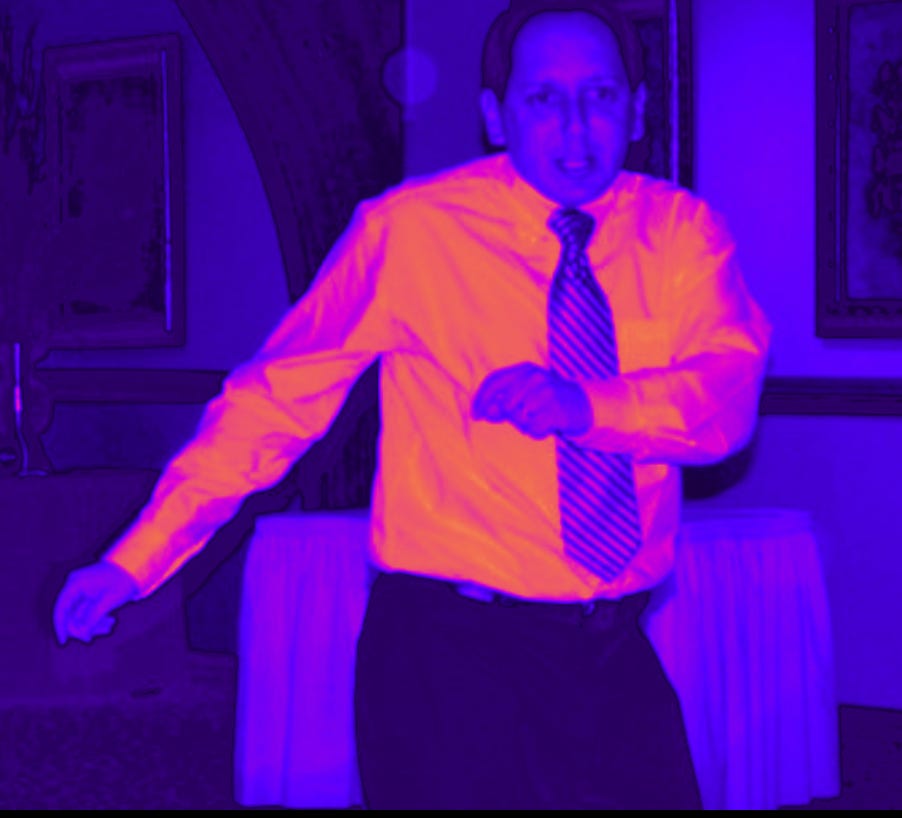



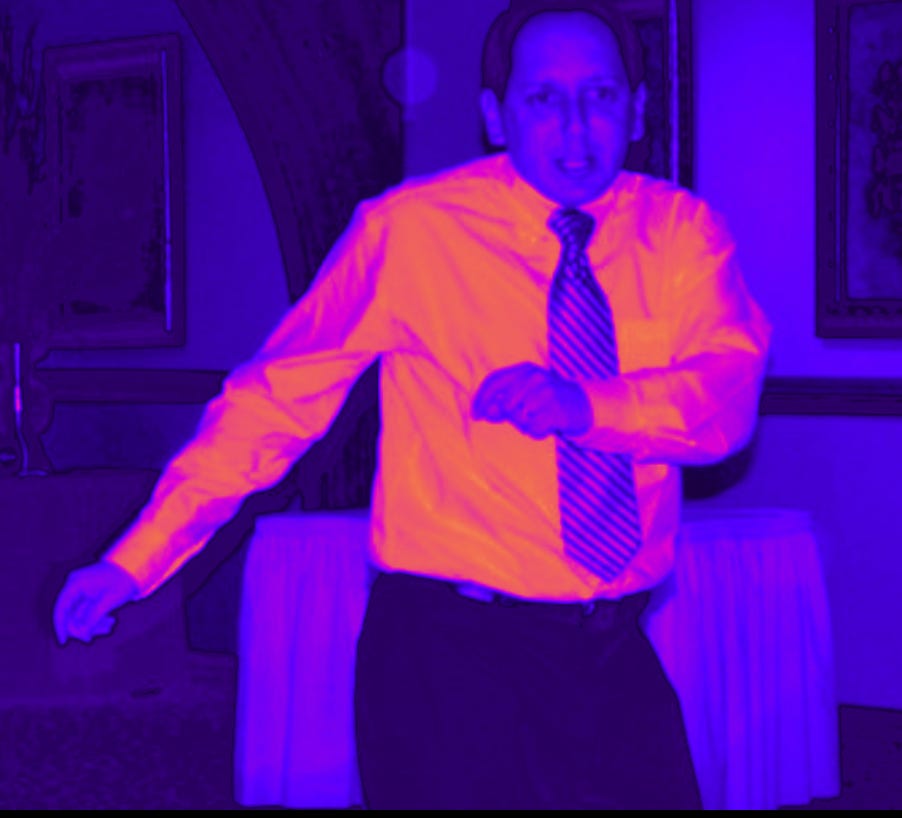

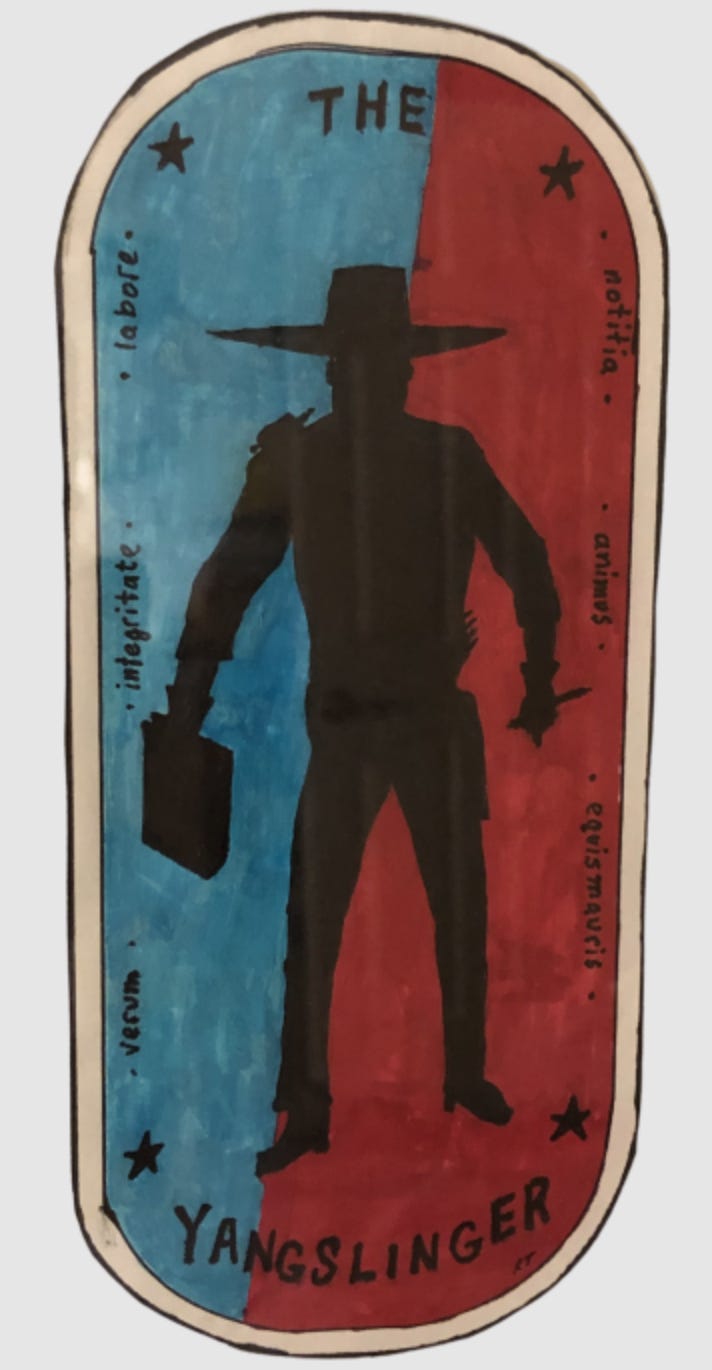


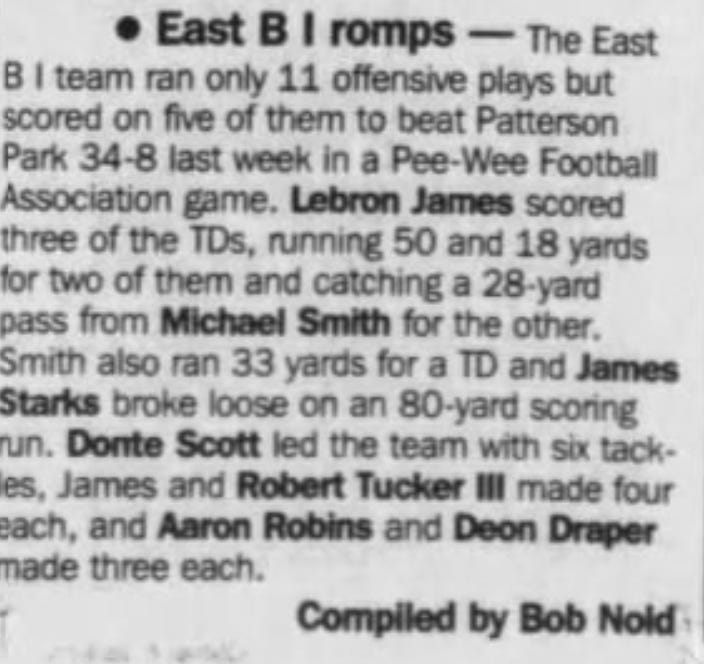


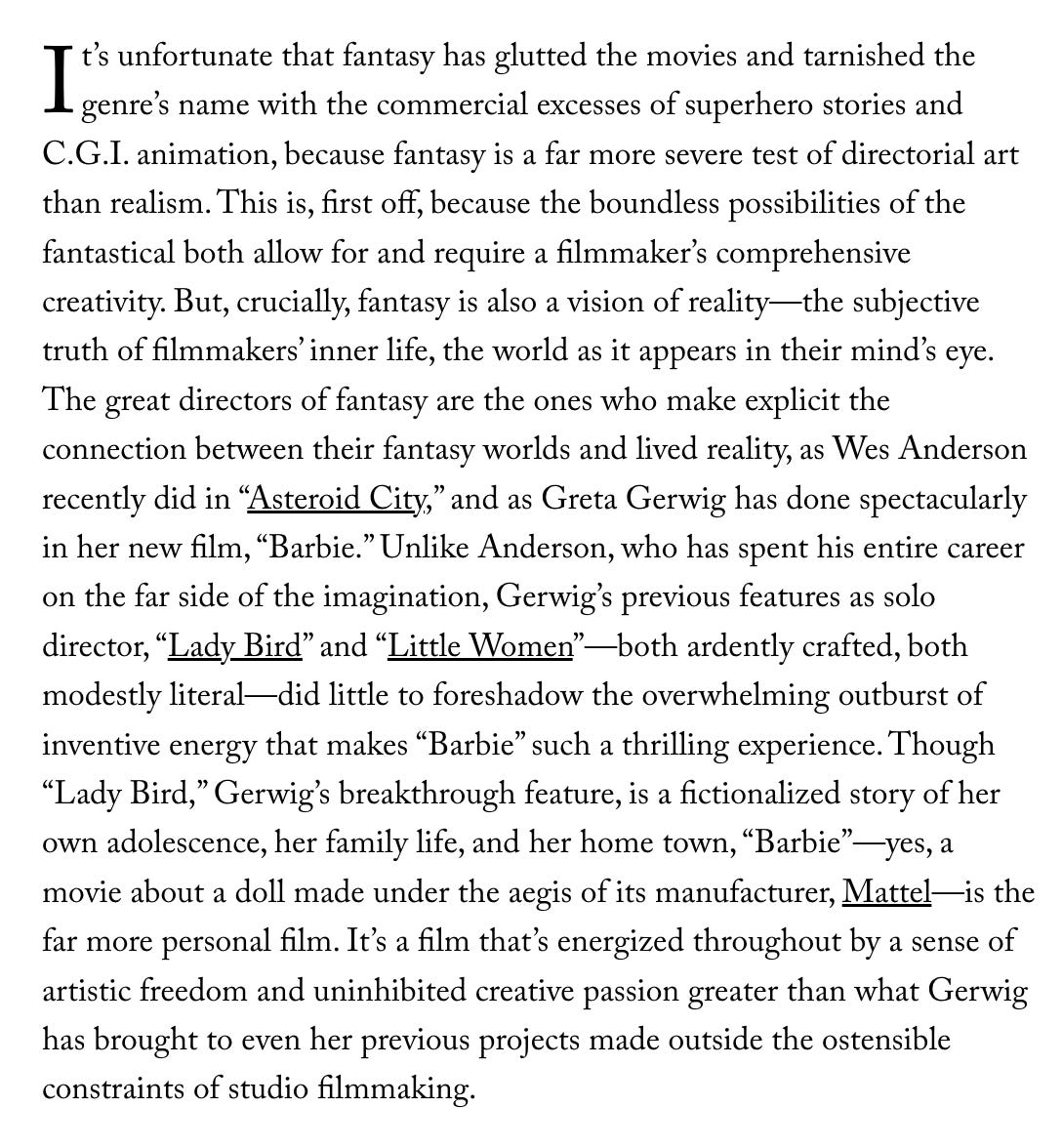

I made $5,000 in three months freelancing this winter and decided I preferred a stable job haha. Kudos to the freelancers out there! I'm jealous of your skills
$4 a word? The most I ever got paid for an article (this happened twice) was 50 cents a word. I'd shit myself if I got paid $1 a word for a single article.
*Used to be a full-time freelancer, now do it as a side gig. Have been freelancing in either part or full-time capacity since spring 2004.